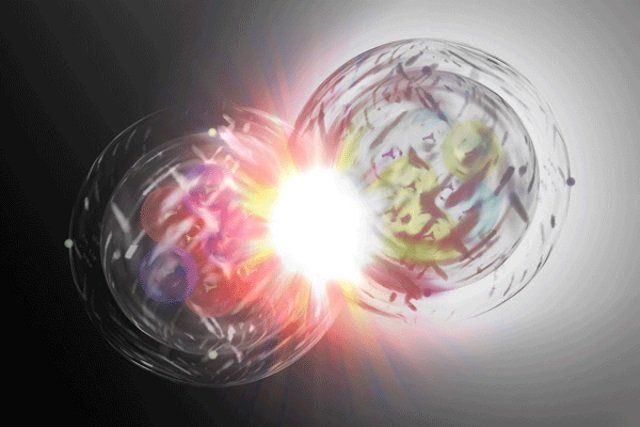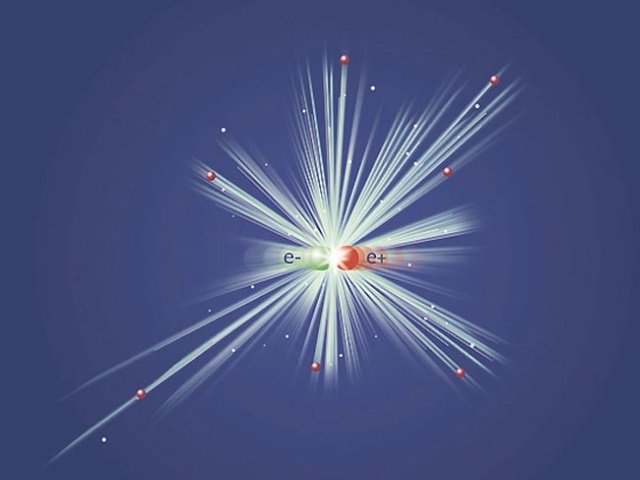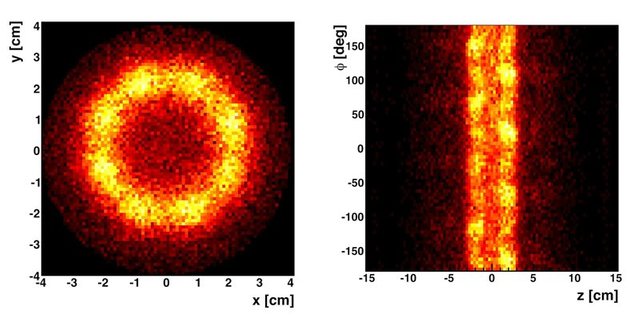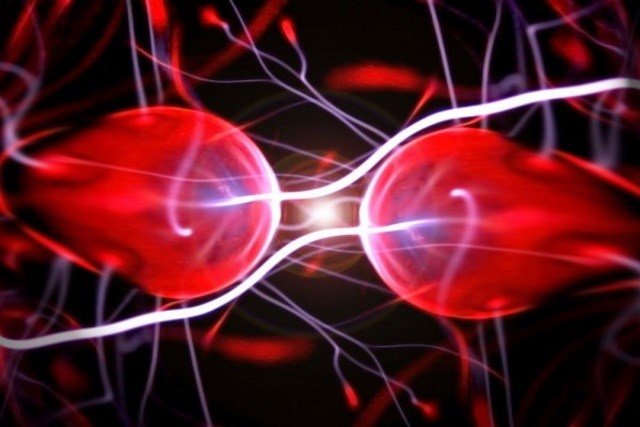
Everyone has heard of antimatter, has it? As foreseen by the Laws of Physics, for every particle that makes up the matter that exists in the Universe, there is an antiparticle - and when it happens that the two meet, they annihilate by releasing energy in the form of light. In addition, current models point out that the amount of matter produced during the Big Bang should be identical to the amount of antimatter. However...
Asymmetries
According to Bec Crew, Science Alert, although in theory all this sounds very beautiful, something and such, the problem is that there is much more matter than antimatter in the cosmos, which does not make much sense. After all, if the two should exist in the same quantities, they too should have been annihilated to the same extent, right? So, how come you have so much more than one of the other?

Moreover, considering the question in practice, since so much matter exists in the Universe, it is incredibly difficult for physicists to find antimatter before it is annihilated. So, studying their properties has been such a challenge! Fortunately, after nearly 20 years of trying, CERN scientists finally managed to measure the light emitted by an antimatter atom, confirming what had already been predicted by physics.
Annihilating matter
According to Leah Crane of the New Scientist portal, what the CERN scientists did was control some of the antihydrogen atoms long enough to observe their behavior and compare it to that of regular hydrogen atoms.

To better understand the experiment, as Leah explained, just as hydrogen atoms are composed of an electron connected to a proton, the antihydrogen atoms are composed of a positron - that is, an anti-electron - bound to an antiproton . And, according to the standard model of particle physics, these anti-atoms should absorb and emit light at the same wavelengths of regular hydrogen, the most abundant element in the Universe.
So during the experiments, physicists were able to capture 14 antihydrogen atoms at once through a kind of magnetic trap. They then hit these particles with an intense laser beam - to force their positrons to move from a lower energy level to a higher one -, measured the type of light emitted, and contrasted the results with those made with the atoms of regular hydrogen.

More precisely, the measurements of the emitted light happened when the positrons returned to the lowest state of energy - and the team found that the spectrum of light emitted by the antihydrogen is identical to the one observed with the regular hydrogen. In other words, the behavior of one of the particles mirrors exactly the other. And what is the importance of all this?
Well, if the experiments pointed out that antimatter does not obey the Laws of Physics in the same way as ordinary matter, it would mean that there is something very wrong with current Big Bang models.

However, according to Nell Greenfieldboyce of the npr portal, confirmation that antimatter apparently behaves as expected opens the possibility that scientists go ahead with their studies and break their heads to find out why regular matter has gotten rid of annihilation Complete when the Universe was born - allowing everything we know could exist, including ourselves.
Sources:
Tag Spam = Using irrelevant tags, especially popular tags. Using tags improperly makes it hard to find good and relevant content.
Please use relevant tags when posting! Abusing tags can potentially lead to people flagging you, even from dan himself.
Specific Tags
#steemit / #steem
Please only use the steemit tag for articles distinctly related to steemit itself.
Downvoting a post can decrease pending rewards and make it less visible. Common reasons:
Submit
Your title is not entirely correct and does not actually mean anything. We are not "measuring light". What do you want to actually measure? We can measure the radiation spectrum of some atoms (or anti-atoms) or the properties of some radiation. This is slightly different from measuring light.
Now, in fact, light emitted by antimatter has already been seen for many years, like for instance in electron-positron collisions where the positron emits some photons before colliding. What has been measured by the ALPHA collaboration for the first time is the radiation spectrum of antimatter atoms.
Good post otherwise. I guess that you may get a few extra upvotes but tagging it appropriately :)
Downvoting a post can decrease pending rewards and make it less visible. Common reasons:
Submit